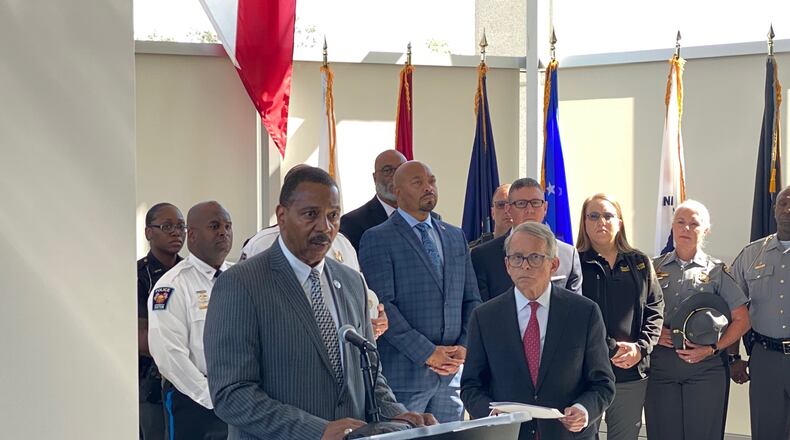The program, which accepted its first candidate earlier this year, was introduced last year by Gov. Mike DeWine as a byproduct of his implementation of the Office of Law Enforcement Recruitment (OLER).
DeWine asked Patrick Oliver, director of Cedarville’s criminal justice program, to serve as the lead consultant to the statewide office and the new academic program, the release stated.
“Students who graduate from this rigorous professional development program will have great potential to become Ohio’s next generation of law enforcement leaders,” DeWine said. “In a time when many law enforcement agencies are struggling to recruit highly-qualified candidates, this program will create a pool of pre-qualified applicants with a strong understanding of criminal justice issues and the know-how to form positive relationships within their communities.”
The honors program will pilot at Cedarville and Central State during the upcoming spring and fall semesters and will include 11 students in the first class.
Will Geist, from Springfield and one of the program’s students at Cedarville, said he hopes the program will help his long-term career goals of serving in law enforcement.
“I’m excited about all the preparation I’ll receive — physical fitness, ride-alongs and mentorship,” Geist said. “Knowing that I’m growing professionally and will have a job right after I graduate is such a benefit.”
The program is open to qualified upper-class criminal justice majors and participants will be guaranteed a job with a partnering law enforcement agency after graduation.
“This program is a win-win-win,” Oliver said. “College students are developed, mentored and guaranteed a job; police agencies get top-quality hires, and the participating universities have a distinctive honors program that places their criminal justice majors in jobs after college.”
DeWine and the OLER did a survey of over 60 law enforcement agencies around the state about recruitment, in which the top issue was how difficult it is to find quality applicants, especially women and minorities.
“I thought to myself, ‘We cannot run the selection process for law enforcement agencies, but we can identify, screen, and develop candidates that we’ll make available for agencies to hire,’” Oliver said. “That idea led to the program, which we view as filling those needs with leadership development and mentorship.”
About the Author

